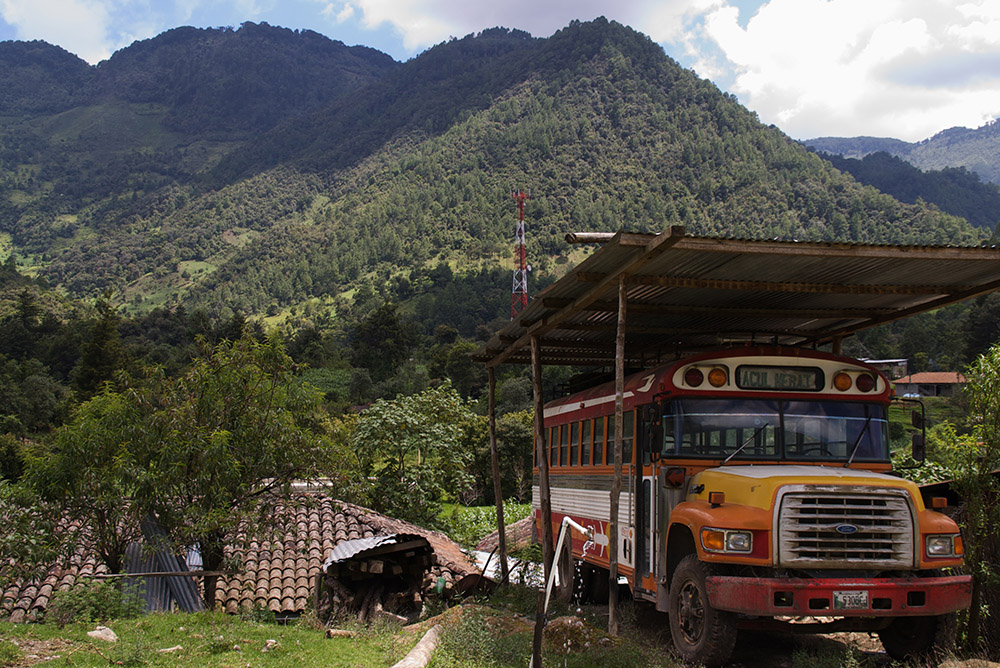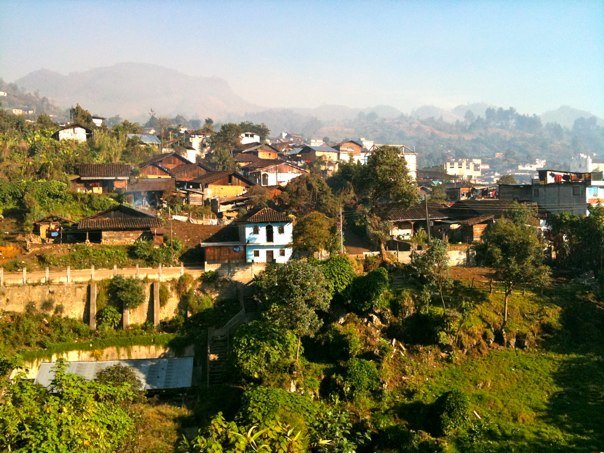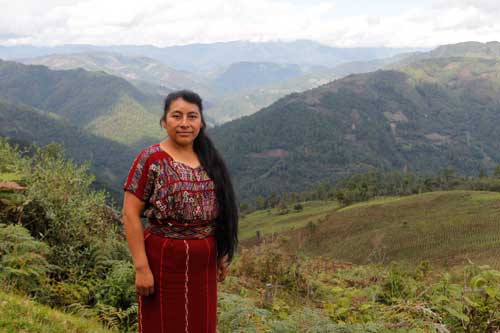In early 2015, I had the opportunity to visit a number of communities in the Ixil Triangle. The conditions I saw were harsh, folks with no light, no clean water, no toilets, no beds, no floors in their homes, walls made of decomposing timber.
Since 2004, I have been working full-time in Guatemala, working directly with the poor on poverty alleviation and empowerment projects. I am no stranger to poverty or rough living conditions. But this trip was a wake up call for me. The goal of my projects had been to help the poor reach middle class. Over the years, as success built upon success, I had lost sight of where we had started and what stark poverty was.
I slept on the ‘good bed.’ My host had actually made a makeshift bed for me out of 2 pine boards. That translates to hard and cold. Prior to the trip, when I asked my host about bedding, he said, “I have 2 blankets.” I interpreted that “I have 2 blankets for you” when it was more accurately stated “I have two blankets in my home.” Luckily, I was hauling humanitarian aid for this trip, and I liberated a few blankets from goods I was hauling. Still, I spent every night shivering. I never hit deep REM sleep. I never rested. I have a Norse body, and carry my own insulation with me, yet I was cold and uncomfortable. And I had the good bed.
I paid attention to other beds. There were few beds as we know them. Some were wooden frames with a webbing of plastic string to make a box spring of sorts. Cardboard and blankets were scattered on top for a make-shift mattress. The most common perhaps was a mound of laundry where the family slept as a unit in a nest.
I thought about the programs I had been involved with over the years. What good is a nutrition program, if you burn up all your energy just trying to stay warm in your sleep? What good is a work program if you are constantly tired? What good is an educational program if you haven’t hit REM sleep and recharged you brain—in years?
I parked the truck on a road/sidewalk/storm drain/septic sewer. It was all the same thing. Black water flowed past the truck tires. The only thing that approached a sanitation program was the rainy season.
In another village of some 150, there was no sewer, no septic system, nothing. People used the street or the nearby river as a toilet.
I thought to myself, “What improves quality of life more than a toilet?” If there is something, I am unfamiliar with it.
We had a number of beverages on this trip—anything from coffee to boiled grain to chicken broth. All the beverages were hot. Mothers knew that they had to boil their water to purify it. This is quite true, and for perhaps the last generation, boiled beverages have been the norm.
Now ponder the local deforestation of 150 families who must burn firewood for every glass of water. Think of how much labor gets used to make a pitcher of lemonade when step one is “sharpen the machete.” Think of how many empty calories are ingested when mom tries to hide bad flavors with sugar. Imagine how easy it is to be in a state of constant dehydration when there is no water readily available, and how that impacts your life, your growth rate, brain activity, and so on. It’s constant headaches from dehydration, it’s your heart working a little harder, all the time, because your blood is thicker. It is new mothers thinking there is something wrong with them because they are too dehydrated to lactate. All this for lack of a water filter.
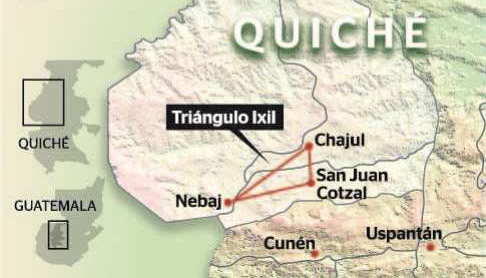
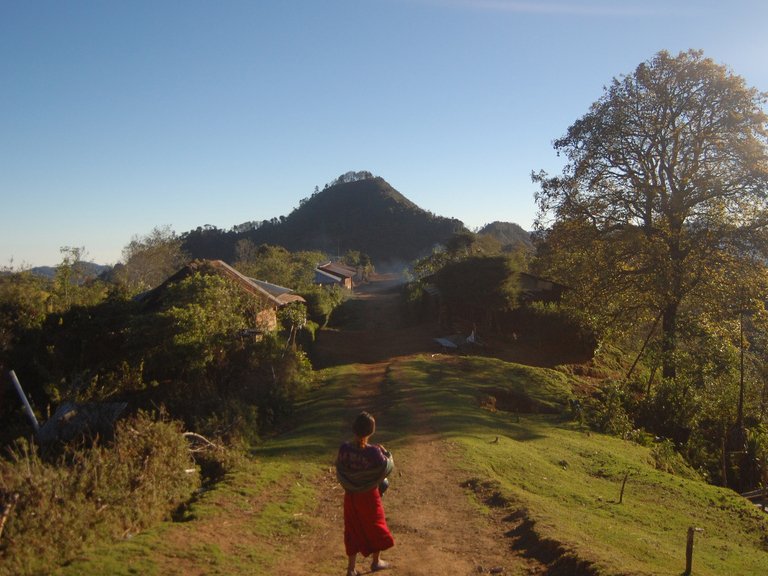

Evening comes, and the town shuts down at sunset. Candles burn in many homes for an hour or two after dark. If people walk after dark, they carry cheap flashlights with expensive D-cells. Knock off batteries like DUBACELL cost perhaps half a day’s wage, but don’t last even that long. Only in Guatemala do you find imitations of imitations, and with the letters “B” and “V” largely interchangeable, you get DUVACELL batteries, costly but without the life.
Productivity essentially ends at sunset. Mom may still make tortillas by candlelight, and many dinners are served by candlelight, but kids cannot study, weavers cannot weave, artisans cannot ply their skill. Perhaps a machete gets sharpened by candle, but productivity ends with the sun.
Communication is rough without electricity. The nearest phone line is at a hydroelectric plant, 10 miles away. A hydroplant which does not provide electricity to anyone nearby. No phone lines at all, but some have cell phones. A walk to a nearby village with power is needed to keep your cell phone charged.
Things in my truck included medicinal herbs, which I left at a public clinic that had a reasonably functional medicinal garden. I lunched with the nurse—there was no doctor—and talked to her about contraception. Every family had zero resources, but 6 kids, and the outlook down the road is even bleaker. She was able to expound upon the 8 types of contraception that they provided. I was flabberghasted that such a rural area had any at all, much less a nurse who understood them. Then I thought back to my 9th grade sex ed class and counted on my fingers. I couldn’t get to 8. I was impressed.
Then I asked a few more questions, like what was in inventory. Well, not all 8 right now. The government only sends a few condoms and the like from time to time, and they don’t last. No one can implant the copper T, so it doesn’t really work. There is a stigma associated with the strip under the skin, so they don’t get used. But most telling of all—the clinic policy is to only give out birth control to married mothers. That is less discriminatory and more redundant than it first seems as there is no such thing as married woman who is not a mother. There is no such thing as a non-pregnant bride. How I wish I were exaggerating. The sad reality is maternity bridal dresses are the norm, but a religious fervor grips the town, and single women—girls really—cannot get birth control. This, coupled with no electricity and no evening entertainment ensures a 14 year generational spacing, osteoporosis, fallen uteri and fallen teeth, crazy population growth and pressure on resources, and a host of other health and social problems that should have been obsolete since the discovery of latex.
Meals were interesting. For the most part, they consisted of boiled leaves. There were half-a-dozen or so plants that could be likened to something spinach-esque that made up the main component of a meal. There was usually a corn-based or potato-based starch, usually wrapped up in a boiled leaf, or else a corn tortilla that could be wrapped around boiled leaves.
I brought 30 eggs to my host. He ate them all in 3 days. The lack of protein was so acute he couldn’t pace himself any slower than 10 eggs a day.
All of these moments stay with me. They bring to life for me the need for clean water, evening lighting, a warm bed, and food as basic elements for human dignity. That’s why Catalyst exists.
